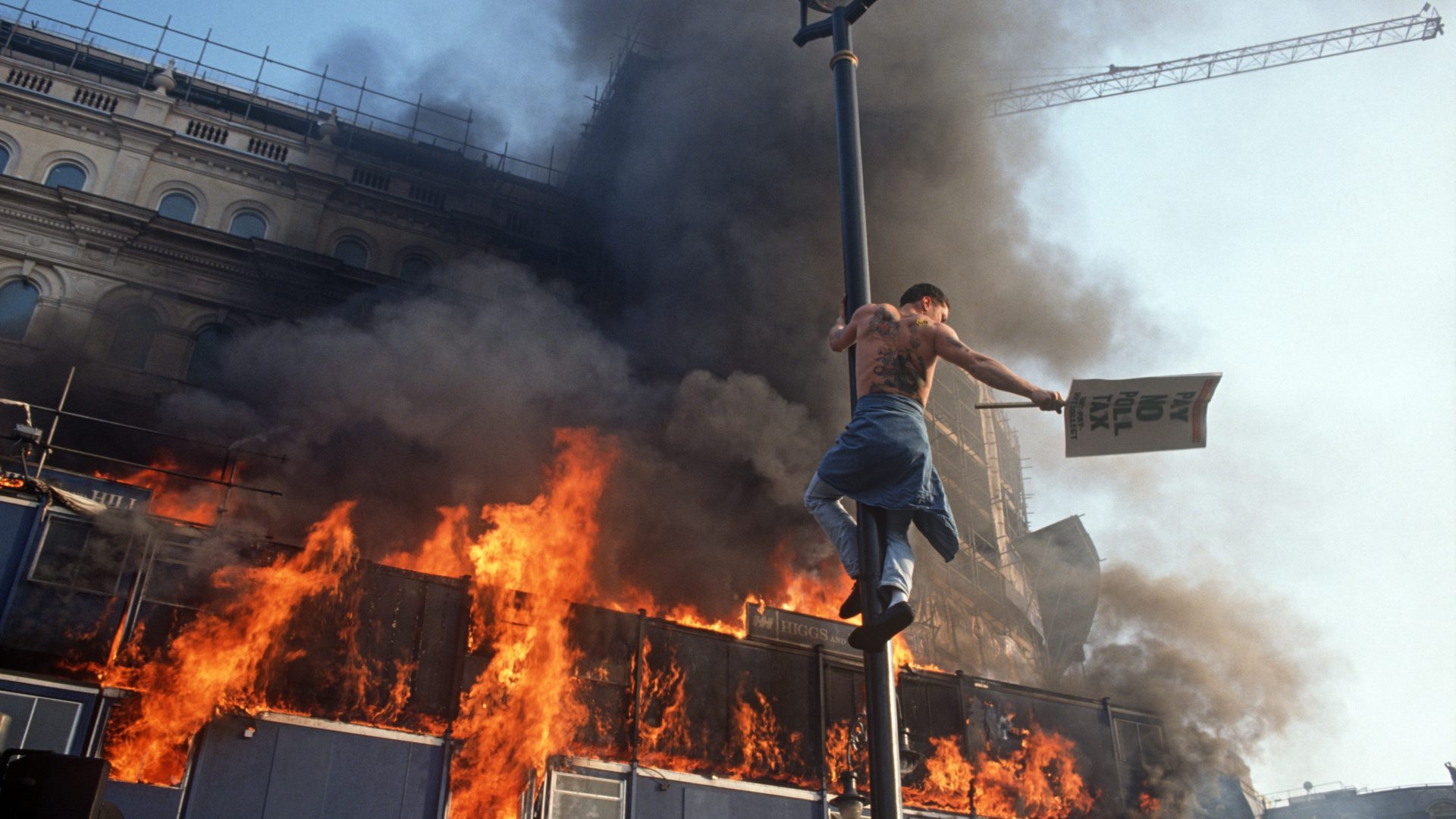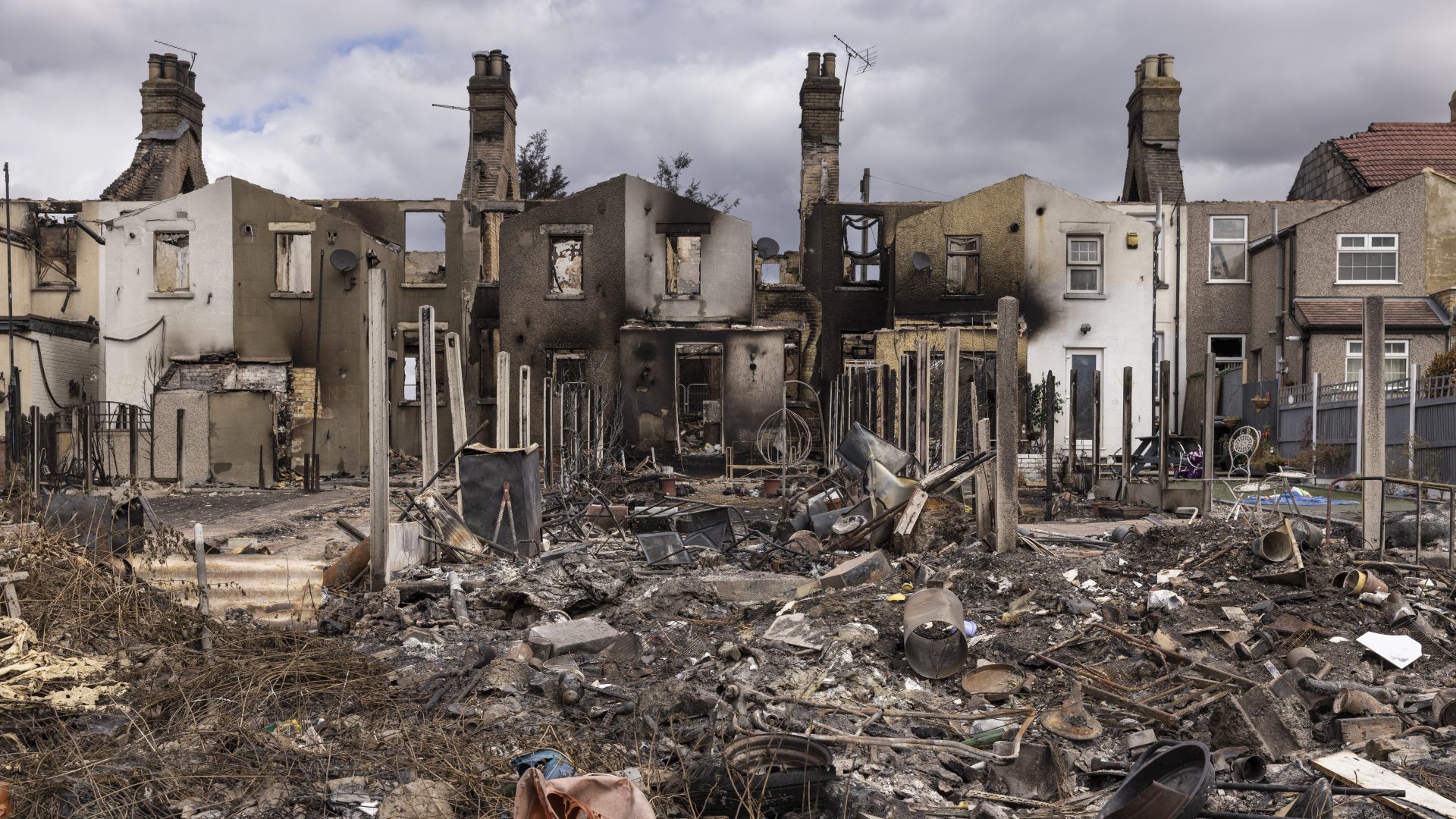The idea of people having to choose between heating and eating used to sound so extreme. Looking towards this autumn, the choice is completely moot. Millions won’t be able to do either.
The threat of power cuts looms right at the point where we really need the headroom to worry about the parlous under-investment in the water supply. People will put up with a lot, but it seems unlikely that they’ll accept the condition of life being impossible. But what’s the civic response likely to be?
You know you’re on the left when you’re already in a group chat about EIE before you know what it means (Enough is Enough), what it is (a national campaign of 50 rallies across Britain), or who’s behind it (trade unions and community organisations). If you’re a Generation X-er – the classic definition is “insolent, intelligent, ironic and spirited”, per Paul Fussell, but he omitted “lazy” – right about now, you’ll be experiencing a crushing sense of futility.
When I think of the protests of my youth, all I can think of is crushing failure. In the 1980s, it was all peace marches and CND, and they never did any good. This has gone through the filter of what a 10-year-old expects success to look like, by the way. In fact, END, the European peace wing, did make gains, but did Mikhail Gorbachev and Ronald Reagan ever clasp each other in embrace and say, “those hippies taught us a thing or two”? They did not.
In the 90s, it was the poll tax riots, and they, of course, brought down a prime minister (indirectly), but at the time, all I felt was a crushing imposter… well, not the syndrome, because it was true. I was, 17, with two 17-year-old buddies, surveying the wreckage in Trafalgar Square, which we’d skirted slightly too clear of to wreck ourselves, and really, what the hell did we know about paying tax?
There were a few protests against globalisation dotted through the rest of the decade, which so far as I know did nothing to halt or humanise globalisation, culminating in a chaotic anti-G8 protest in Genoa which taught me a lot about tear gas. By the time I pointlessly protested against the war in Iraq, in 2003, I was no longer in my formative years, but I couldn’t fail to be impressed by the sheer number of people who would have to be ignored, and duly were.
I basically expect demonstrations not to have an impact. Fine, I’ll show up, but not to make history – unless we’re writing the Complete History of People who Furiously Objected to Things That Went Ahead and Happened Anyway.
Allied to my protest-scepticism is a more general incredulity about people power. Maybe once in a blue moon, a spontaneous popular movement will change the direction of travel, but generally only if they’re allied to a more powerful group’s agenda (the Countryside Alliance), or they can wreak havoc with heavy equipment (farmers, hauliers), and even then things don’t go their way for long.
This year feels different. What will probably be the least able government in living memory will be faced with a set of challenges so immense that their inadequacy will be terrifying. None of this is a coincidence. To get to the very dregs of this self-serving party, we had to cycle through previous, more charming iterations of politicians always acting in their own narrow interests.
There’s probably quite an accurate formula to describe exactly how many bad decisions it takes for a nation’s worst situation to collide with its worst leaders. But that’s not why it’s all going to kick off.
What’s coming might be a lot crunchier than a protest march. The summer’s rail strikes were covered by a hostile media in the regular way: these were selfish, coddled workers trying to ruin your plans, and they probably got paid more than you anyway.
But that’s not how they landed. Instead, union leaders like Mick Lynch have become heroes overnight, just for saying in a trenchant way the regular, self-evident things that everyone thinks but politicians have forgotten how to articulate.
People are sick of stagnant wages. They’re sick of price gouging and profiteering. They’re sick of shareholder dividends. They’re sick of declining conditions. Once you change the frame of strike action, so that it presents not an inconvenience to regular people, but a restoration of their power, ideas spring up.
What would happen if different sectors went on strike on behalf of each other? What would happen if unionised workers withdrew their labour in solidarity with the non-unionised? How about a pop-up union or a wildcat strike?
I used to think it would be hard to recover the creativity of the 80s. You read amazing stories from that era, chemists’ shop assistants in Bradford giving out prescriptions for free, or the strike of the bureaucrats, where the staff in an unemployment benefits office overpaid people on purpose. Yet it always seemed very much of its time, playful collective action, impossible to replicate in a post-Thatcherite landscape.
But what a ridiculous thought – sure, Thatcher smashed manufacturing, but she couldn’t erase solidarity. She was just a free market fundamentalist, she wasn’t a wizard.
What happens, besides, when people stop paying their bills? Nearly six million people are already struggling, and that’s before the energy price hike in October, before mortgage payments have increased to reflect the new interest rates, and of course, before winter.
Around 75,000 people have already signed up to DontPayUK, which is as it describes, a bill strike: let the energy companies and the government sort it out between themselves. They cannot stick it on customers, who had no headroom or savings to begin with.
You can map what this looks like sector by sector, but what you cannot do is picture the perfect storm, when coordinated bill refusal meets spontaneous rent default, when it hits banks and local authorities. It won’t be pretty, but nor will it be meek.
Bill strikes have a complicated history; undoubtedly, some people were thrown under the juggernaut of law and order in the 1980s rate strikes and 90s poll tax refusals, yet in the second case particularly, this mass direct action was a key driver of change.
Maybe this time, even the protest marches will be different. Demographics matter: not because, for instance, it made the Remain movement inherently ridiculous that all its marches were treated as picnics by an, ahem, mature crowd (I literally saw someone arrive once with a roast chicken and a bottle of Sancerre).
Rather, because millennials and Gen Z are doing protest differently. From Black Lives Matter to the school climate strikes, they have figured out how to create international resonance for universal messages, how to keep an issue alive.
This is not because they have the internet, by the way, though that undoubtedly makes everything faster. It is because they have made the connection between climate change, wealth concentration and racialised violence, and once you’ve seen it, you can’t unsee it: it knits together every action, whether it’s a sit-in or a go-slow, a peace march or a riot, and bestows them all with a shared purpose.
Older, more sober heads – experts, scientists, academics, the people who in regular times would take the point of the radicals, but overall prefer the status quo – are faced with a party of government that has (I think partly by accident) radicalised itself into a delusional state. The two candidates to be the actual prime minister of this country – which once, not so long ago, had some of the most robust climate change regulation in the world – are competing with one another to see who can be the most vapid and irrelevant.
Sunak wants to meet the climate catastrophe by listening to his children. Truss wants everyone to recycle more, and be thrifty, the way she is. Listening to them would have been chilling, were it not for the recent unprecedentedly high temperatures, which scorched away even the memory of being chilled.
Eminently sensible people will be looking at our politics and thinking it is just insufficient to the seriousness of the age. When Extinction Rebellion and Insulate Britain have more grip and maturity than anyone who has been or could be elected, you know you’re heading for interesting times.
The adage activists use is “power concedes nothing without a demand”. Whether or not we see a general strike, a bill strike, demos, riots, direct action, what matters is not these events themselves but whether or not anything comes of them. What are the demands, will they cohere, will they be heard?
The party of government is too far gone to have a meaningful response, but the opposition needs to take these questions seriously.
Towards the end of the Trump government, an American woman on Twitter quoted her French boyfriend: “Things are so bad in your country,” he said, “and yet nothing is on fire. How do you expect change, if you won’t set fire to things?” The French protest tradition, from the Poujadistes to the Gilets Jaunes, is much more comfortable with direct action, with less pearl-clutching about its morality (though plenty of anxiety about the morality of the causes themselves).
In Britain we’ve lately seemed a bit too polite, a bit too rule-bound, to go for the jugular in terms of civil disobedience. But a poll last week asked whether rioting on the street was justified, given the cost-of-living crisis: 41% of 35- to 44-year-olds said yes, rising to 49% of 18- to 24-year-olds. It would be a supreme irony if part of Boris Johnson’s legacy was helping to make Britain more French.




